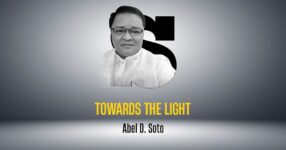
WHY ELECT AN AMERICAN POPE
When I first read the news in Facebook that Pope Leo XIV, an American-born clergyman, had ascended to the papacy, I knew that the Catholic Church had entered a new and unprecedented era. For centuries, Vatican insiders have believed that no U.S. citizen would ever occupy the highest seat in the Church—especially while America remained a global superpower. And yet, here we stand, witnessing a historic departure from that assumption. This moment is more than a symbolic shift; it carries profound implications for both the Church and the geopolitical landscape it inevitably intersects with.
The perception that American clergy are too parochial for such an elevated role has now been disrupted. While Pope Leo XIV hails from the United States, his extensive service abroad proves that his perspective is far from narrow. He defies the typical American archetype within the Church’s hierarchy, representing something far more global, something beyond borders and national influence. The real question now is: will he uphold the trajectory set by his predecessor, or will he redefine the Church’s approach entirely?
Some are already framing Leo XIV’s leadership as an ideological counterweight to the current U.S. administration, painting him as an anti-Trump figure. His previous support for policies championing migrants and environmental stewardship certainly aligns more with the values of his predecessor than with those of the sitting American government. But the truth is, these positions are not controversial within the Vatican—they represent a long-standing ethos of Catholic social teaching. This is not simply a political statement but an affirmation of the Church’s enduring mission.
What intrigues me most is how Pope Leo XIV will navigate the cultural and theological tensions that define Catholic discourse today. His history of appointing bishops who align with Francis’s vision suggests continuity, but his past statements on moral issues reveal a potentially sharper stance than his predecessor. Will he revive the more forceful rhetoric once common in Catholic leadership? If so, the Church could be poised for a new phase—one that balances doctrinal fidelity with pastoral engagement in an increasingly divided world.
His governance style will also be critical. Francis was often criticized for his autocratic approach to decision-making, bypassing traditional Vatican bureaucracy in favor of swift reforms. Will Leo XIV follow in those footsteps, or will he offer a more measured leadership style? His ability to manage ideological divides within the Church will determine how his legacy unfolds. Will he be a unifier, or will his papacy be defined by internal conflicts over his vision?
Beyond ecclesiastical matters, his American identity presents a fascinating dilemma. At a time when U.S. global influence is being questioned, the elevation of an American pope introduces complex diplomatic considerations. Historically, the Vatican has sought to remain above national affiliations, yet there’s no denying that the global perception of the Church will be shaped by Leo XIV’s nationality. His interactions with world leaders—some supportive, others adversarial—will determine the Church’s place in international politics under his leadership.
There’s also the matter of how he will engage with media and the broader public. Francis embraced transparency and direct engagement, often utilizing modern communication channels to connect with the faithful. Leo XIV’s previous critiques of Western media suggest he may take a more guarded approach. Will he adopt a reserved stance, favoring traditional Church communication, or will he recognize the importance of addressing contemporary audiences through modern platforms?
What I find most significant about this moment is not merely the historical novelty of an American pope—it is the deeper, the structural change that this marks for the Roman Catholic Church. Whether Pope Leo XIV solidifies existing Vatican priorities or steers the Church in a new direction remains uncertain. What is undeniable, however, is that his election challenges long-standing assumptions, both within the Roman Catholic establishment and in the broader socio-political landscape.
His success will depend on more than just policy decisions. It will hinge on his ability to bridge ideological divides, reaffirm moral leadership, and inspire both clergy and laity to engage meaningfully with the world. As I watch this new era unfold, I can’t help but wonder: will Pope Leo XIV be the guardian of Francis’s legacy, or will he become the architect of a new ecclesiastical transformation?
Still, Habemus Papam! Let us pray for our new pope.
Source: WHY ELECT AN AMERICAN POPE



